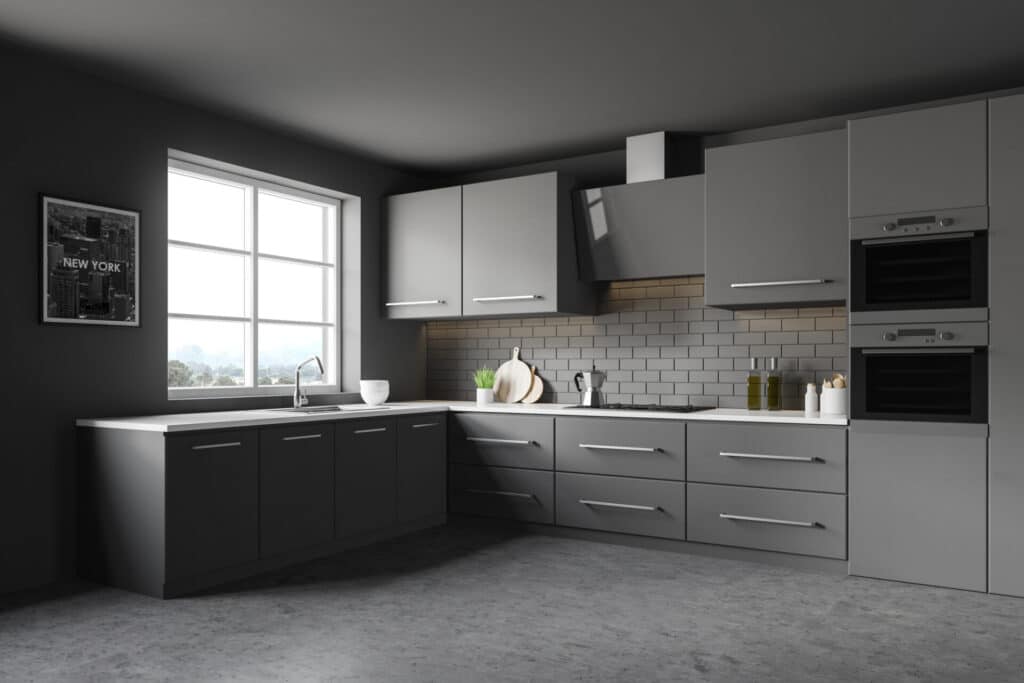
Concrete flooring has become increasingly popular in residential and commercial spaces due to its durability, versatility, and modern aesthetic. However, as with any flooring option, there are pros and cons to consider before making a final decision. In this article, we will explore the advantages and disadvantages of concrete flooring, helping you determine if it is the right choice for your space.
Advantages of Concrete Flooring
1. Durability:
Concrete is a highly durable material and is ideal for high-traffic areas such as hallways, kitchens, and commercial spaces. Concrete flooring is resistant to scratches, dents, and stains, which makes it suitable for areas where children or pets are present.
2. Longevity:
Concrete floors have a long lifespan that lasts for several decades with minimal maintenance, unlike other flooring options that may need to be replaced every few years, concrete floors are known to withstand wear and tear, reducing the need for costly replacements.
3. Versatility:
Concrete floors can be customized to suit various design preferences. They can be stained, stamped, or polished to create different colors, textures, and patterns, allowing you to achieve a unique and personalized look that complements your overall interior design.
4. Easy Maintenance:
Concrete floors are extremely easy to clean and require minimal maintenance. Occasional mopping and sweeping are sufficient to keep them looking clean and fresh. Unlike carpet, concrete does not trap dust, allergens, or odors, making it a healthier choice for allergy sufferers.
5. Energy Efficiency:
Concrete acts as a thermal mass, absorbing and storing heat from the sun and releasing it slowly throughout the day. This natural heat regulation helps to reduce energy consumption, keeping your space warmer in winter and cooler in summer.
6. Cost-Effective:
Concrete flooring is a cheaper and more practical option compared to other flooring materials such as hardwood or marble. The installation cost of concrete floors is relatively low, and the long lifespan of the material does not require frequent replacements or repairs.
Disadvantages of Concrete Flooring
1. Cold and Hard Surface:
One of the main drawbacks of Concrete flooring is its cold and hard surface. In colder regions, walking on a cold floor can be uncomfortable, especially during winter months. Additionally, standing or walking on concrete for extended periods may cause discomfort and fatigue.
2. Lack of Insulation:
Concrete floors do not provide much insulation against heat or sound. In colder climates, this can result in a colder and less comfortable living environment. Similarly, in highly trafficked areas or multi-level buildings, the lack of sound insulation can lead to noise transfer between floors.
3. Susceptible to Cracks:
Although concrete is a durable material, it is not completely immune to cracking. Factors such as settling, heavy loads, and temperature changes can cause concrete to crack over time. While these cracks can be repaired, they may be visible and affect the aesthetic appeal of the floor.
4. Hard on Feet:
Walking or standing on a concrete floor for long periods can be uncomfortable and cause fatigue. The hard surface of concrete offers little to no cushioning, which can result in foot and leg discomfort, especially for individuals with joint or back problems.
5. Limited Design Options:
While concrete flooring offers versatility in terms of color and texture, it may not be suitable for all design styles. The industrial look of concrete may not appeal to those seeking a more traditional or cozy atmosphere. Furthermore, customization options such as staining or stamping can be expensive and will require periodic maintenance to retain their appearance.
6. Installation Challenges:
Installing concrete flooring is a complex process that requires professional expertise. The concrete needs to be poured and leveled accurately, and the subfloor must be prepared properly to ensure a smooth and even finish. Moreover, the curing process of concrete can take several days or weeks, which may cause inconvenience if you need to access the space during this time.
Concrete flooring offers several advantages, including durability, longevity, versatility, and easy maintenance. It is a cost-effective option that can be customized to suit various design preferences. However, it also has its downsides, such as its cold and hard surface, lack of insulation and soundproofing, susceptibility to cracking, and limited design options. Before choosing concrete flooring for your space, carefully consider your specific needs, preferences, and budget. If you are willing to overcome the drawbacks, then concrete flooring can be a durable and stylish choice for your residential or commercial space.
